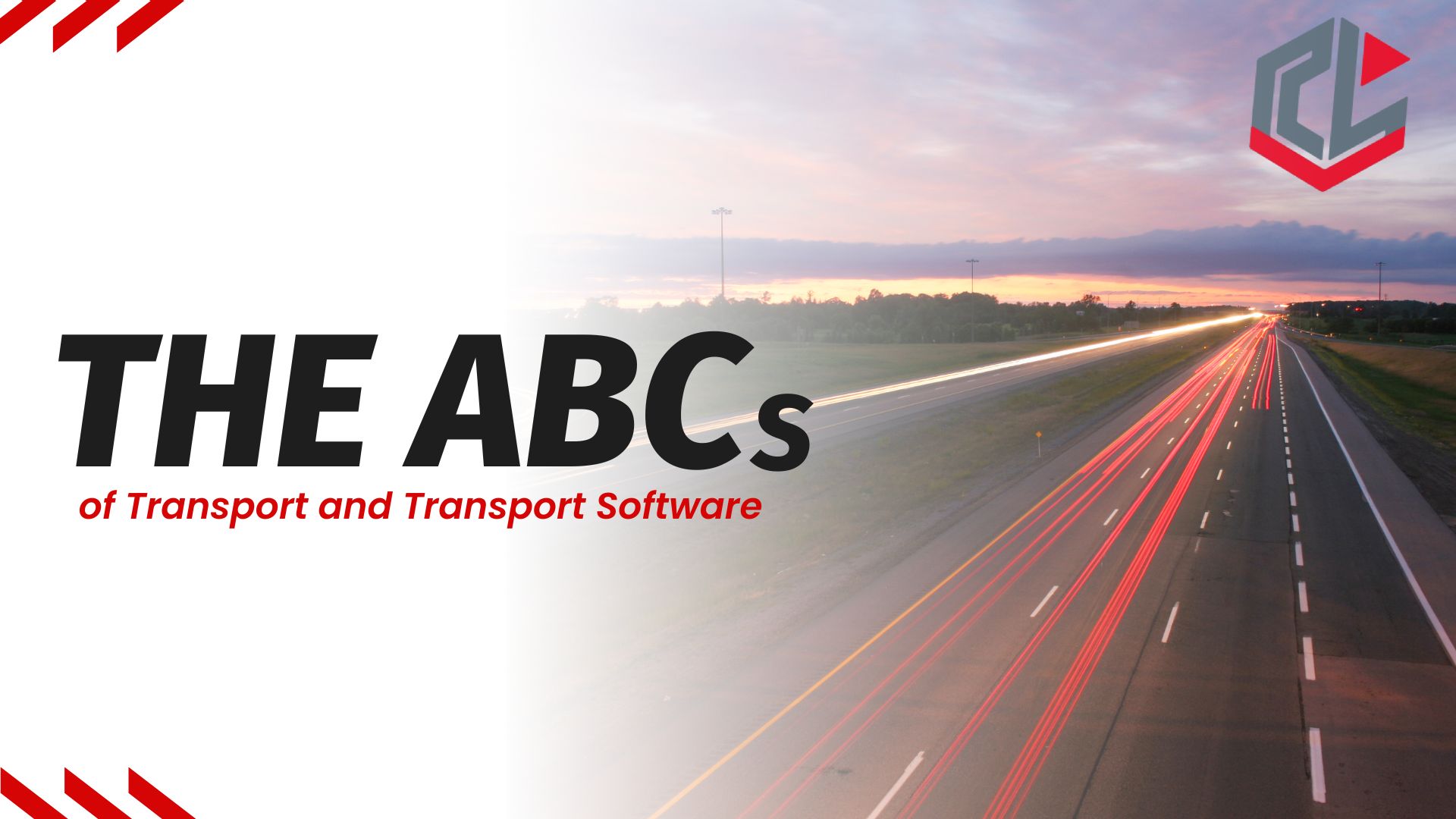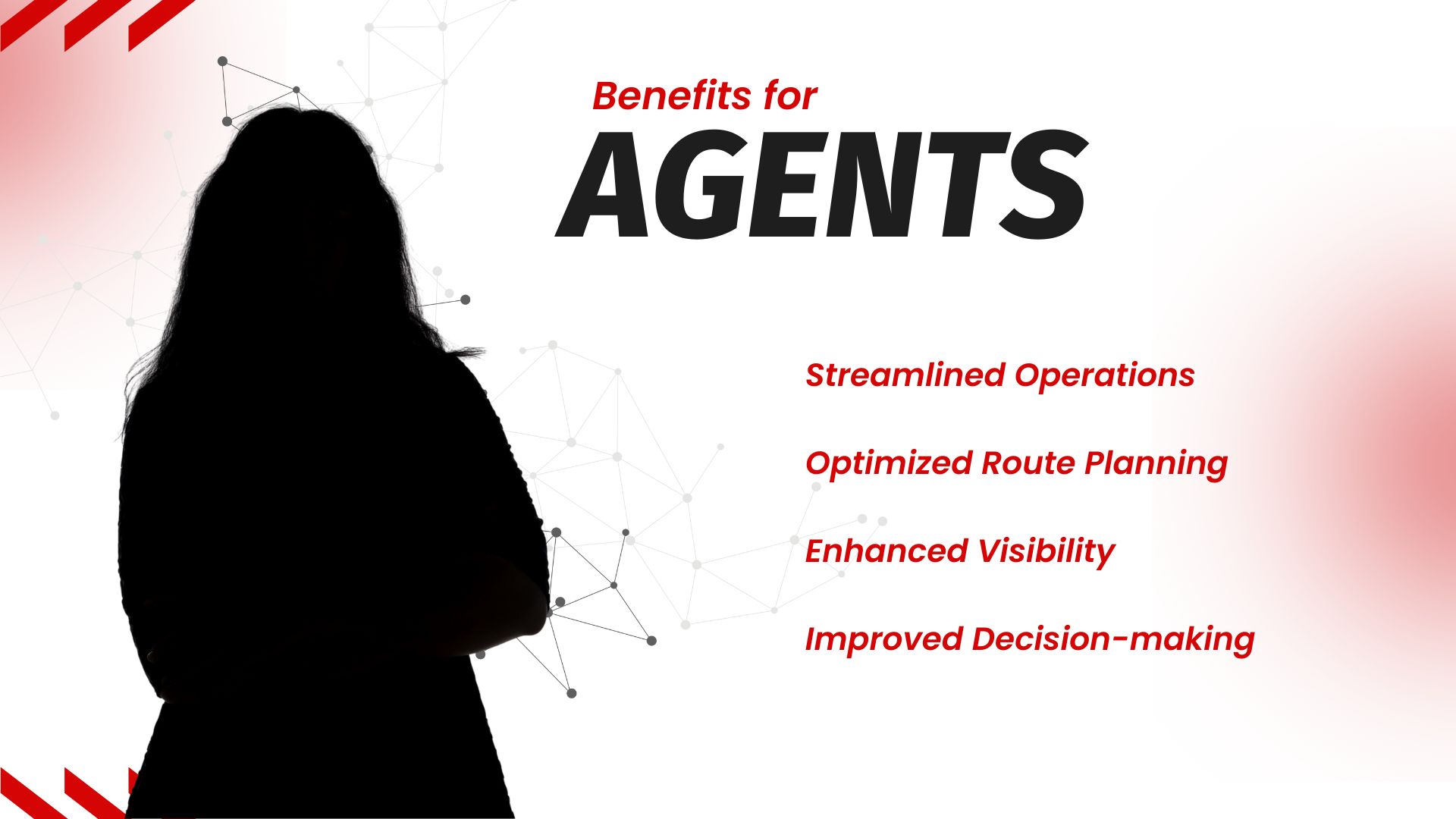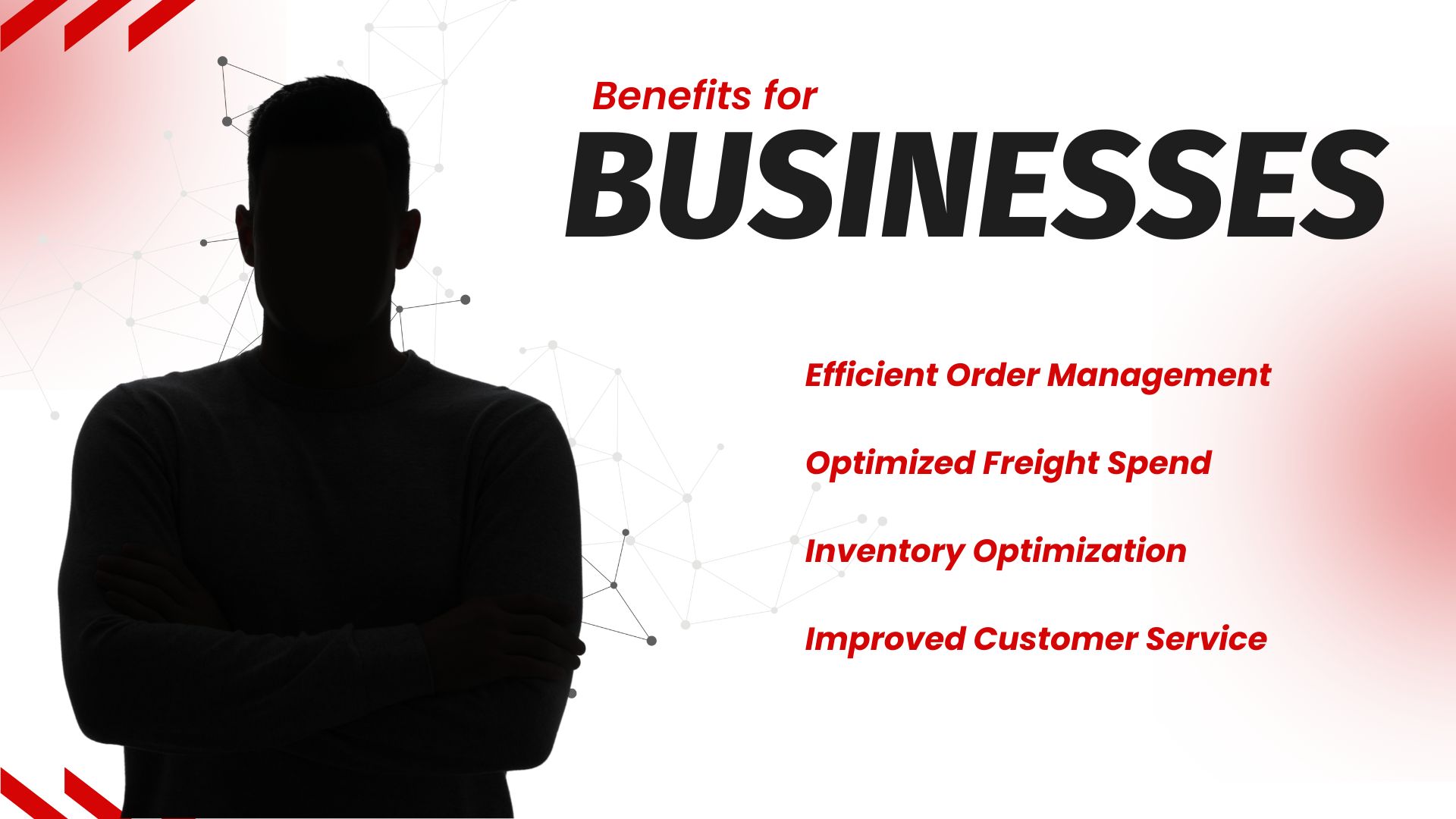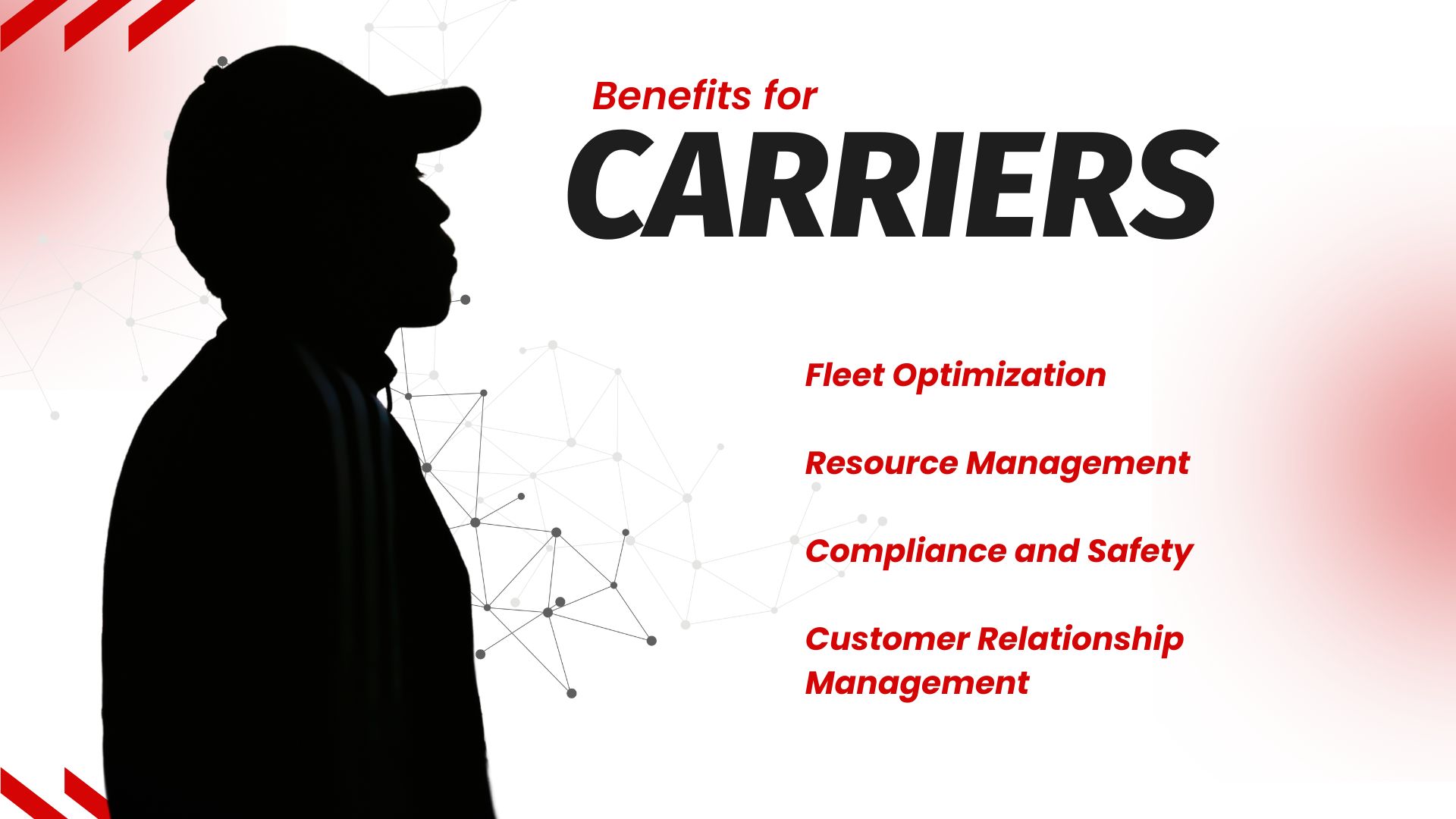May 6, 2024

If you want to learn more about transport software and what it can do for your transport business and the industry at large, then we need to take a step back and learn about the building blocks of transport. The transport industry, essential for global trade and logistics, encompasses a diverse network of players assisting the seamless movement of goods worldwide. Understanding the roles and relationships among these key players—Brokers, Shippers, and Carriers—is essential for navigating the complexities of this sector. Here, we delve into the “ABC’s” of the transport industry, elucidating the functions and its connection of these entities.

A for Agents (Brokers)
Brokers, often referred to as Agents or Logistics Brokers, act as the crucial link between shippers and carriers. They lack ownership of transportation means but specialize in the logistics of goods movement, utilizing their expertise and network to efficiently connect shippers with carriers. Their role involves discussing contracts, ensuring legal compliance, managing paperwork, and overseeing the transportation process from start to finish. By optimizing the logistics, brokers can reduce costs and transit times, offering valuable services to both shippers and carriers.
Simply, brokers connect shippers with carriers to transport goods to their destinations. By leveraging their deep understanding of transportation logistics and market dynamics, brokers ensure that goods are transported efficiently, cost-effectively, and in compliance with requirements. In essence, brokers serve as the architects of logistical solutions, crafting bespoke transportation arrangements tailored to the unique needs of their clients.
Key Functions of Agents in the Transport Industry:
Negotiation and Contracting
Brokers negotiate rates and terms between shippers and carriers, ensuring a fair deal for both parties.
Coordination and Management
They coordinate the pick-up, transit, and delivery of goods, managing any issues that arise during transportation.
Compliance and Paperwork
Brokers ensure that all transportation complies with local, national, and international regulations by handling necessary documentation and permits.

Why Agents Benefit from Transport Software
Brokers ensure that all transportation complies with local, national, and international regulations, handling necessary paperwork and permits.
Transport Management Software (TMS) represents a transformative advancement in the operational landscape of transportation brokers. By harnessing these innovations, TMS drives a paradigm shift in the efficiency and effectiveness of brokers within the transport industry. Through automated workflows, brokers can swiftly navigate through tasks that once demanded significant time and resources, thereby optimizing operational workflows and reducing administrative overhead.
Key Functions that a Transport Software can improve for Agents:
Here are some other benefits of a Transport Management System (TMS) for brokers:
Streamlined Operations
TMS automates tasks like order processing, rate negotiation, and documentation, allowing brokers to prioritize strategic activities such as building client and carrier relationships.
Optimized Route Planning
With TMS, brokers can access data on transportation routes, traffic patterns, and carrier capacities. This allows them to optimize route planning and minimize transit times and costs for shippers.
Enhanced Visibility
TMS offers real-time visibility into transportation, allowing brokers to track shipments, monitor carrier performance, and address issues proactively during transit. This transparency fosters trust and confidence among both shippers and carriers.
Improved Decision-Making
TMS uses data analytics and predictive modeling for brokers to optimize route selection, carrier allocation, and pricing, improving the logistics process.

B for Businesses (Shippers)
Shippers, comprising a diverse array of businesses ranging from small enterprises to multinational corporations, are the driving force behind the demand for transportation services. These entities originate the need to transport goods. Whether it be raw materials destined for manufacturing facilities or consumer goods destined for the store, shippers’ roles are vital.
Shippers go beyond initiating transportation requests; they orchestrate the entire supply chain process, from procurement and production to distribution and delivery. Shippers must carefully strategize and plan their transportation logistics, taking into account factors such as inventory management, lead times, transportation modes, and customer demand. Their ability to effectively manage these variables directly impacts supply chain efficiency, customer satisfaction, and ultimately, business success.
Key Functions of Businesses in the Transport Industry:
Product Movement
Shippers are responsible for initiating the transport of goods, deciding when, where, and how products should be moved.
Logistics Planning
They plan the logistics of transportation, which may involve selecting the mode of transport, packaging goods for safe transit, and managing inventory levels.
Cost Management
Shippers often work to minimize transportation costs while ensuring timely and safe delivery, balancing between speed, cost, and customer/business trust.

Why Businesses Benefit from Transport Software
Transport Management Software (TMS) is a versatile platform that empowers shippers with a wide array of tools and functionalities. It is aimed at optimizing transportation operations, enhancing visibility, and driving cost savings throughout the supply chain. Transport Management Software (TMS) offers shippers a comprehensive suite of tools and functionalities that streamline transportation operations and enhance visibility. Additionally, it also drives significant cost savings by optimizing processes, improving efficiency, and fostering cooperation across the supply chain.
Key Functions that a Transport Software can improve for Businesses:
Here are some other benefits of a Transport Management Software (TMS) for brokers:
Efficient Order Management
TMS automates order management tasks such as booking, scheduling, and tracking, enabling shippers to efficiently manage their transportation requirements and respond quickly to changing demand.
Optimized Freight Spend
TMS gives shippers visibility into freight rates, carrier performance metrics, and transportation costs, allowing them to optimize spending by selecting the most cost-effective options.
Inventory Optimization
By integrating with inventory management systems, TMS helps shippers optimize inventory levels and warehouse operations, ensuring timely replenishment of stock and minimizing stock outs.
Improved Customer Service
TMS enables shippers to offer real-time shipment tracking and delivery updates to customers, boosting transparency, communication, and overall customer satisfaction across the supply chain.

C for Carriers
Carriers, the backbone of the transport industry, are the entities responsible for physically moving goods from point of origin to final destination. These may include trucking companies, shipping lines, railroads, airlines, and other transportation providers. Frankly, any transporter that possess the infrastructure, equipment, and expertise necessary to transport goods across various modes of transportation.
Carriers play a multifaceted role in the transportation process, encompassing functions such as transportation operations, route management, vehicle maintenance, and regulatory compliance. Their primary objective is to deliver goods safely, reliably, and efficiently while adhering to strict schedules and quality standards. Carriers must navigate a complex web of logistical challenges. These include traffic congestion, weather disruptions, regulatory hurdles, and fluctuating demand, all while striving to optimize fleet utilization and minimize operating costs.
Key Functions of Carriers in the Transport Industry:
Transportation
Carriers provide the physical means to transport goods, offering various modes of transportation such as road, rail, air, and sea.
Route and Schedule Management
They manage the logistics of transportation routes, including scheduling, routing, and dealing with transit delays.
Safety and Compliance
Carriers ensure that the transportation of goods complies with all safety standards and legal requirements, maintaining the integrity and security of the cargo.

Why Carriers Benefit from Transportation Management Software
Transport Management Software (TMS) serves as a powerful tool for carriers. It can provide them with a suite of functionalities aimed at streamlining operations, improving efficiency, and delivering superior service to their clients. Through a centralized platform, carriers can communicate with shippers, consignees, and other stakeholders, share critical information, and provide updates on shipment status in real-time. This seamless cohesion fosters stronger relationships with clients and partners, enhances transparency, and improves overall customer service.
Key Functions that a Transport Software can improve for Carriers:
Here are some other benefits of a Transport Management System (TMS) for carriers:
Fleet Optimization
TMS provides carriers with tools for optimizing fleet utilization, route planning, and vehicle scheduling, maximizing the efficiency of their transportation operations and reducing empty miles.
Resource Management
TMS empowers carriers to manage driver assignments, track vehicle maintenance schedules, and monitor fuel consumption, ensuring efficient resource utilization and minimized operating costs.
Compliance and Safety
TMS helps carriers ensure compliance with regulatory requirements and safety standards by providing automated alerts for driver hours-of-service, vehicle inspections, and compliance documentation.
Customer Relationship Management
A transportation management system enables carriers to better serve their customers. This is accomplished by providing real-time visibility, proactive notifications for delays, and enhanced communication channels.
The Transport Industry and Transportation Management System Cohesion
The transport logistics industry is a complex ecosystem with a network of players each playing a pivotal role in the global movement of goods. Brokers, or Agents, optimize logistics; Shippers, or Businesses, generate transportation demand; and Carriers, or Transporters, physically move goods. Understanding the functions and relationships among these players is vital for navigating the transport and logistics industry, ensuring efficient, safe, and cost-effective transportation solutions.
Transport management software plays a pivotal role in enhancing the capabilities and performance of brokers, shippers, and carriers in the transport industry. Transportation management systems empowers stakeholders to streamline operations, optimize logistics, and save costs, fostering a more efficient, transparent, and responsive supply chain. As the transport industry continues to evolve, this software will remain an indispensable tool for navigating its complexities. Its goal will be delivering value to stakeholders across the transportation and logistics landscape.

Working with Cogent-Powered Transport Logistics Software
Agents, businesses, and carriers would greatly benefit from working with Cogent products, particularly its Transport Management Software (TMS), due to several key reasons.
Cogent transportation management system offers a user-friendly interface and intuitive features that make it easy for users to adopt and integrate into their existing workflows. Cogent logistics software ensures a seamless experience for brokers, shippers, and carriers alike, boosting productivity and efficiency in load bookings, shipment coordination, and route optimization.
Cogent’s logistics technology platform offers robust analytics and reporting capabilities that provide valuable insights into transportation performance, cost drivers, and efficiency metrics. Users can then identify opportunities for optimization. They can make informed decisions and continuously improve their transportation operations. This transport pro provides greater value and competitive advantage in the market.
In summary, Cogent products help users achieve transportation goals more easily and effectively, whether optimizing logistics, enhancing customer service, or maximizing fleet efficiency.
Ready to experience the future of transportation management? Try Cogent Cloud today and discover how our software can transform your operations. Let Cogent Cloud be your partner in success on the road ahead.
